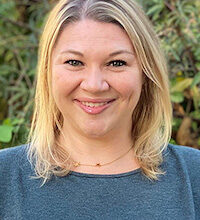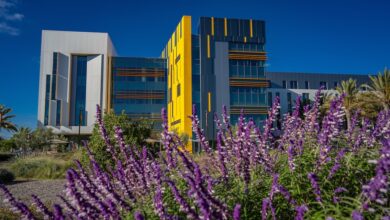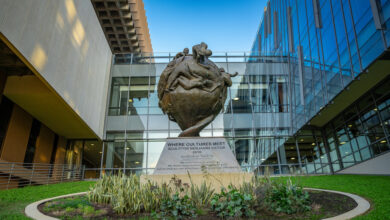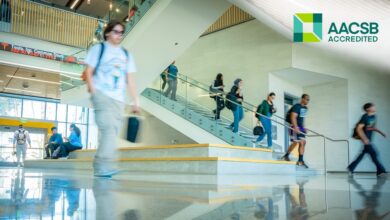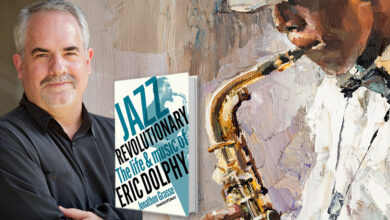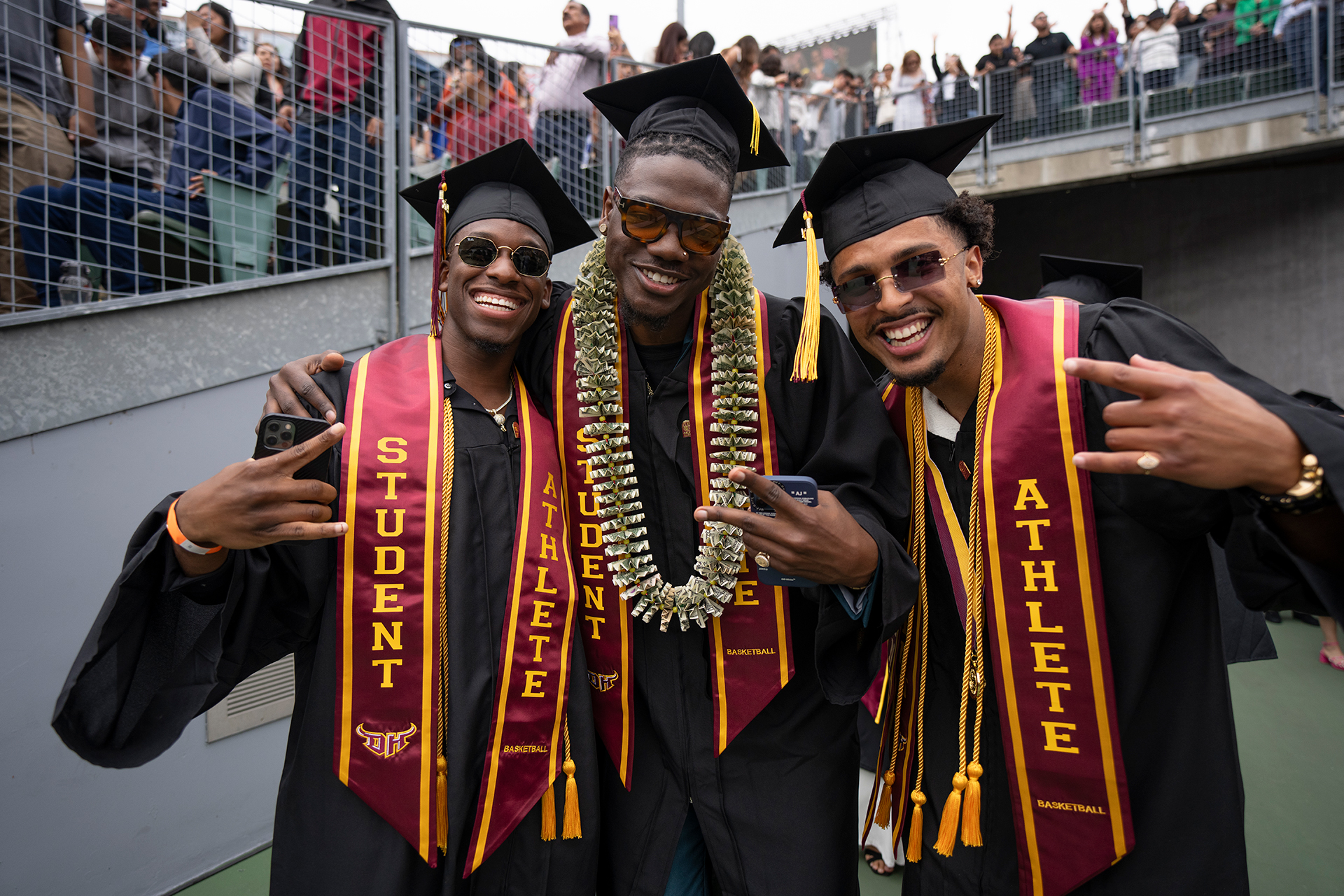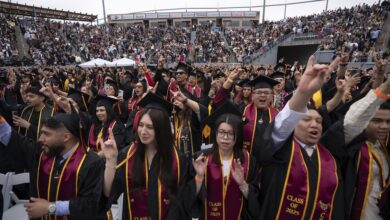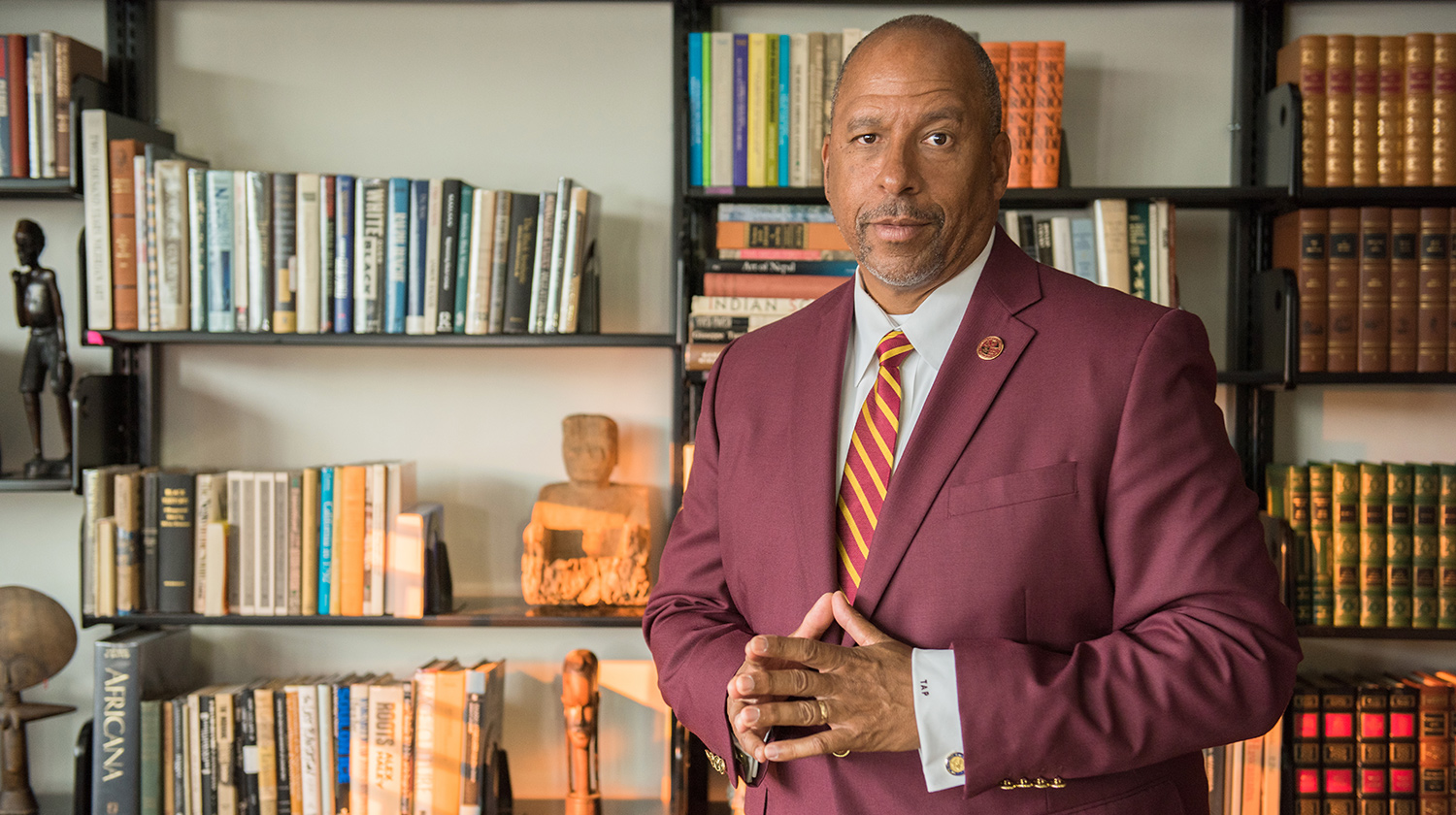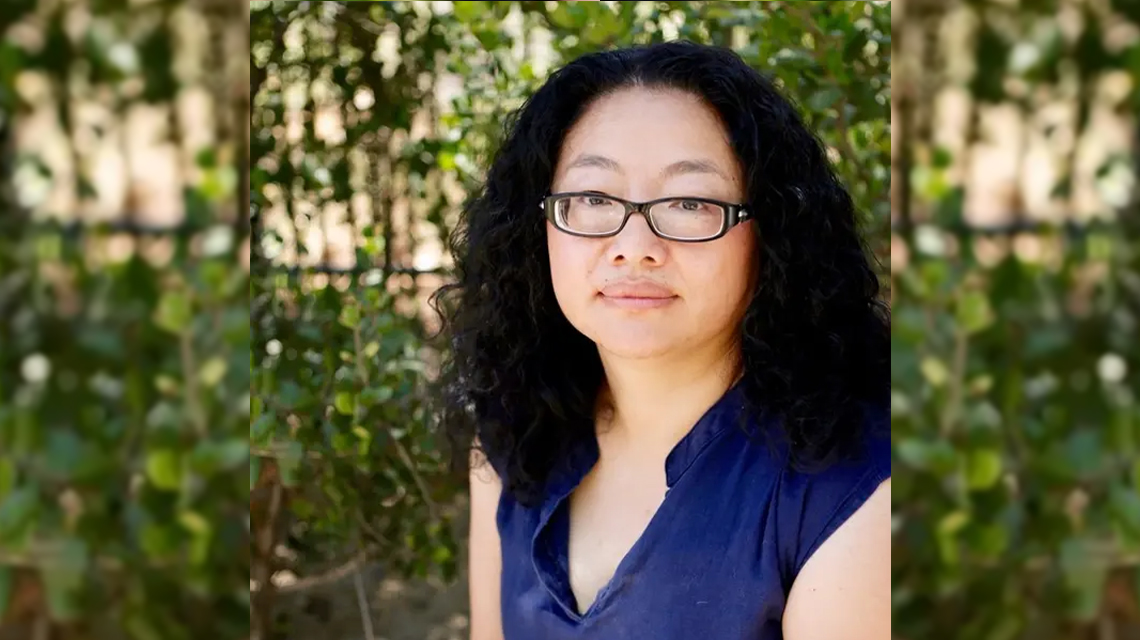
Anne Soon Choi loves to teach. As professor and chair of Interdisciplinary studies, she is passionate about engaging students in critical thinking, enabling them to personally connect to their coursework, and facilitating hands-on learning.
“The best way to learn is by doing,” Choi says. “The most important thing is that my students walk away with skills that can be applied to their lives.”
That enthusiasm for teaching has earned Choi the 2022 Lyle E. Gibson Distinguished Teacher Award, given in honor of CSUDH’s late founding vice president for Academic Affairs. The award recognizes faculty who manifest in their teaching an understanding of broad areas of knowledge, and whose teaching is not only exemplary and demonstrates an active interest in student progress, but also seeks new and creative ways to engage them.
Choi enjoys surprising and challenging her students with unconventional assignments. Since 2009, she has taught IDS 326 Perspectives in Human Studies: American Consumerism, which entails a variety of introspective activities: students use spending diaries to track their purchases, wear the same six items of clothing for two weeks while trying to attract followers on social media, and make a “buyer’s remorse” presentation about an object they regret purchasing.
“I love that our students are game for anything,” Choi says. “They have a lot of enthusiasm for learning. It’s mutually sustaining and enjoyable.”
In addition to covering pollution, fast fashion, and food waste in her IDS 350 Interdisciplinary Topics: Environmental Health class, Choi instructs her class to carry all of their personal garbage around with them for two weeks. Students are often shocked at the amount of waste they unintentionally generate.
“By week two, no one is generating trash,” Choi says, laughing. “It changes their behavior.”
Choi also brings her zest for fresh ideas to her role as interim associate director of online pedagogy and learning for the Faculty Development Center, where she partners with CSUDH faculty looking to try new approaches in the classroom. Choi says that she cherishes working one-on-one with her peers and “wants them to enjoy teaching” as much as she does.
Part of Choi’s motivation stems from experiences she had attending a state school as a first-generation college student. She says that faculty interest and mentorship helped to put her on her career path, and she wants CSUDH students to flourish in the same way.
“I don’t believe in pushing students toward the safe thing to do. I think our students should have the autonomy to think really big,” she says. “I push against the ‘culture of deficit’ sometimes associated with first-generation students. They should have the same opportunities every other college student has.”
In fact, it was the unique student population that initially made Choi want to become a permanent faculty member at CSUDH. Having taught at CSUDH as part of her graduate school program in 2008, Choi recalls being “blown away” by the determination exemplified by CSUDH students.
“They were juggling jobs, children, caring responsibilities, and school,” she says. “Some universities’ students can be very privileged, and that was not the case here.”
Over the past 14 years of teaching at CSUDH, Choi has seen how the transformational education students receive has ripple effects in their communities as well. She cites students’ involvement in their communities as a point of pride and daily inspiration to her teaching.
“Our students have so many ways in which they want to change the world,” she says. “How can you not be affected by that?”

